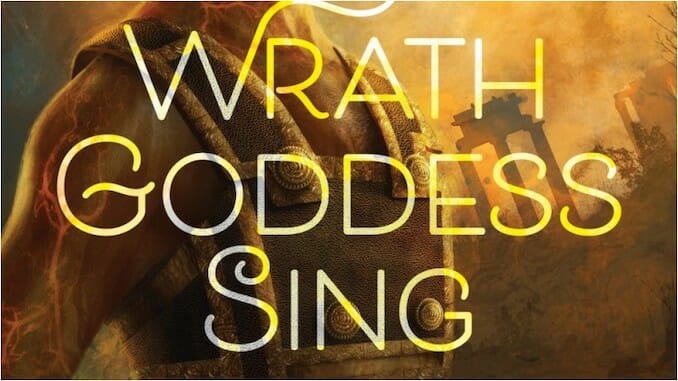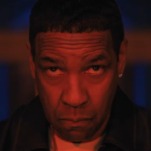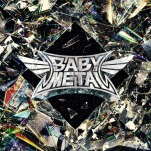Athena Offers Achilles a Chance to Become Her True Self in This Exclusive Excerpt from Wrath Goddess Sing

Mythological retellings are all the rage in the world of publishing right now—from Madeline Miller’s Circe to Jenny Saint’s Elektra and Pat Barker’s The Silence of the Girls, contemporary fiction is taking a long-overdue look at the frequent misogynist way we’ve framed some of the most famous stories in Western literature.
But I can tell you right now, you’ve never read anything like Maya Deane’s Wrath Goddess Sing.
A fresh spin on the story of the Trojan war, Deane reimagines the famous Greek warrior Achilles as the transgender demigod daughter of Athena. (Given there’s an entire section of the Achilles legend that involves him disguising himself as a woman named Pyrrha and hiding from Odysseus among the princesses of Skyros, this actually as much of a swerve from the original tale as you might think.)
But while Wrath Goddess Sing is certainly a story about gender and identity, it’s also one about power, love, and faith. And Deane’s story swells to include much more than the fate of a single woman or even a particular single city and Achilles becomes increasingly enmeshed in the affairs of gods as well as men.
Here’s how the publisher describes the story.
Achilles has fled her home and her vicious Myrmidon clan to live as a woman with the kallai, the transgender priestesses of Great Mother Aphrodite. When Odysseus comes to recruit the “prince” Achilles for a war against the Hittites, she prepares to die rather than fight as a man. However, her divine mother, Athena, intervenes, transforming her body into the woman’s body she always longed for, and promises her everything: glory, power, fame, victory in war, and, most importantly, a child born of her own body. Reunited with her beloved cousin, Patroklos, and his brilliant wife, the sorceress Meryapi, Achilles sets out to war with a vengeance.
But the gods—a dysfunctional family of abusive immortals that have glutted on human sacrifices for centuries—have woven ancient schemes more blood-soaked and nightmarish than Achilles can imagine. At the center of it all is the cruel, immortal Helen, who sees Achilles as a worthy enemy after millennia of ennui and emptiness. In love with her newfound nemesis, Helen sets out to destroy everything and everyone Achilles cherishes, seeking a battle to the death.
An innovative spin on a familiar tale, this is the Trojan War unlike anything ever told, and an Achilles whose vulnerability is revealed by the people she chooses to fight…and chooses to trust.
Wrath Goddess Sing will be released on June 7, 2022, from William Morrow & Company, but we’re excited to share an exclusive excerpt from the story below!
![]()
Even before she opened her eyes, Achilles knew she was dreaming. It was the quality of the light through her eyelids that told her she was not in the world of the living: gray light, a gradient from pale silver to deep charcoal that barely altered when she forced her eyelids open. She reeled, twisted, and scrambled upright, her feet unsure against a floor of loose, crumbling tile. Only—
-

-

-

-

-

-

-

-

-

-

-

-

-

-

-

-

-

-

-

-

-

-

-

-

-

-

-

-

-

-

-

-

-

-

-

-

-

-

-

-








































